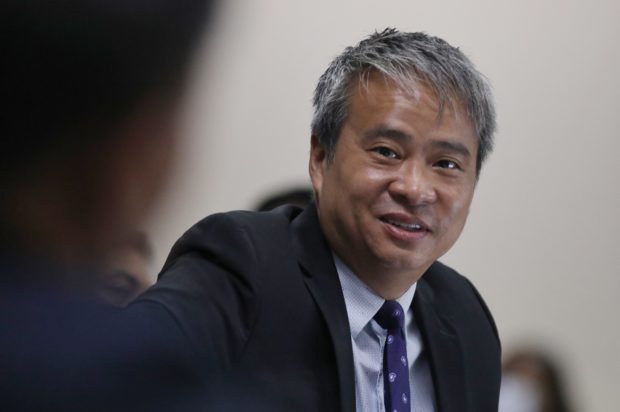
FILE PHOTO: Majority Leader Senator Joel Villanueva. Senate PRIB
MANILA, Philippines — Senate Majority Leader Joel Villanueva on Wednesday pressed the government to provide a “systemic and long-term solution” for job generation to address the high poverty incidence in the country.
He made this call as he underscored the importance of his bill that aims to institutionalize the government’s employment recovery plan.
The Philippine Statistics Authority recently reported that poverty incidence in the Philippines rose to 18.1 percent in 2021, which is equivalent to 19.99 million poor Filipinos.
“The government should ensure that there are quality job opportunities for Filipinos so that they can escape poverty,” the former chairman of the Senate committee on labor said in a statement.
“These should be sustainable jobs with income enough to feed families and provide their basic needs. The longer they are unemployed, the poorer they get,” he stressed.
Villanueva has been pushing for the passage of Senate Bill No. 129 or the Trabaho Para sa Lahat ng Pilipino Act which will institutionalize the government’s National Employment Recovery Strategy (NERS) and expand it to the National Employment Action Plan (NEAP).
READ: Villanueva urges gov’t to ramp up aid for unemployed workers amid pandemic
According to the Senate leader, his bill would address the country’s unemployment problem.
The NERS, he said, initially planned to create up to 2 million jobs by the end of 2022, and has reportedly generated 1 million jobs as of end-2021.
“We should follow through beyond this short-term strategy which ends this year. We need a systemic and long-term solution for job generation to beat the system of long-term poverty in the country,” Villanueva said.
He further said the bill will “stimulate national and local growth and development through investment incentives linked to the creation of more decent employment to address unemployment, underemployment, and rising precarity and informality of work arrangements.”
It will also promote “the employability, competitiveness, wellness, and productivity of workers through efficient and effective delivery of skills development and enhancement programs, and maximization of opportunities in the labor market in a post-Covid-19 world,” he added.
“Our proposed measure will also help micro, small and medium enterprises (MSMEs) to provide support and incentives and ensure the security and preservation of employment,” Villanueva pointed out.
Villanueva likewise shared the administration’s optimism of reducing poverty by 9% in six years, saying, “it is possible as long as there are quality jobs available.”
READ: NEDA says effort to cut poverty by mid-term of Marcos admin on track
“By addressing unemployment, we are on the right track to reduce poverty in the country,” he emphasized.
RELATED STORY
PH inflation beyond the numbers: Deeper poverty, hunger